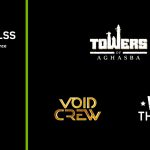Joe Raedle / Staff via Getty
- Ann Hiatt was hired by Jeff Bezos personally in 2002 to work as his executive assistant.
- Working for the Amazon founder was “relentless” and “uncomfortable” at times, Hiatt told Insider.
- Hiatt said Bezos “doesn’t suffer fools” but invests in people once they’ve proved themselves.
A former executive assistant to Jeff Bezos described working for him as “relentless” and “unforgiving.” However, the Amazon founder also invested in people once they’d proved themselves, she said.
Ann Hiatt was hired by Bezos in 2002 and spent three years doing everything from organizing his schedule to booking helicopter flights. She later moved to Google where she was assistant to rising executive Marissa Mayer, and chief-of -staff to then-CEO Eric Schmidt. Hiatt is now an executive coach and has written a book about her experience assisting the leaders of Big Tech.
Working for the Amazon founder-turned-space mogul was “relentless,” Hiatt told Insider. “That, at the core, in a single word, is who he is and who he wants his employees and his company to be.”
An obsession with customers is one of the reasons hailed as driving Amazon’s growth from a small online bookstore working out of Bezos’ garage in 1994 to a company worth more than $1.4 trillion.
Relentless was also one of the names originally considered by Bezos for his e-commerce site before he settled on Amazon. The domain name Relentless.com still leads to Amazon’s website.
But the company has also received criticism for its reportedly ruthless approach to staff, such as its stringent approach to performance management, and its close monitoring of delivery drivers and staff in its distribution centers.
Hiatt said, in her experience, the environment could be “unforgiving” — but working closely with Bezos had its upsides.
Ann Hiatt
“I’ve known a lot of other relentless people that I would never spend 15 hours a day with,” Hiatt said.
When Bezos chooses to invest in an employee, “he teaches you to think like he does. To question and to envision and to demand more from yourself than anyone else would,” Hiatt said.
Bezos’s management style is similar to his hiring philosophy, Hiatt said — “which is to hire people he has to hold back not push forward.”
“Once you’ve earned your keep, just by getting hired, the reins are off and he’s going to let you hang yourself with [them] if you’re going to.”
Bezos also “doesn’t suffer fools.” If he thinks you’ve not done your homework on something you should have, he will let you know about it, Hiatt said.
But he will also turn a kernel of an idea, unwittingly presented by an employee, into a job, and prompt the person to explore it further, Hiatt said.
Bezos would not take no for an answer
Hiatt shared an example of when she was asked to help Bezos write his first Ted Talk in 2003.
In his speech, Bezos wanted to compare the dawn of the internet to either the gold rush or the discovery of electricity. He wanted to know if there were any examples of people being scared by these moments in time.
Hiatt had recently graduated from college and still had a library card, so was tasked with searching archives of old newspaper articles for examples of people being frightened by electricity.
She spent all weekend searching and reported back that she couldn’t find anything. Bezos would not accept her answer.
“Just because you haven’t found it, doesn’t mean that it doesn’t exist,” she recalls him saying. “He just really called me to task in front of very senior people.”
At the time it felt like difficult feedback for an employee who had worked hard all weekend. But Hiatt then realized that Bezos was right. She couldn’t possibly have covered all of the information available in two days. Eventually, she found an article.
Hiatt has spent four years coaching CEOs, and previously told Insider that curiosity is one of the two traits shared by billionaire CEOs like Bezos. The other, she said, is resilience.
The “secret sauce” that set Bezos apart from other early-internet CEOs was his management style, alongside the systems he put in place, such as clear leadership principles and strict instructions for crafting the perfect memo, Hiatt said.
This meant his decision making could be replicated, extending his influence beyond his physical presence.
Powered by WPeMatico






